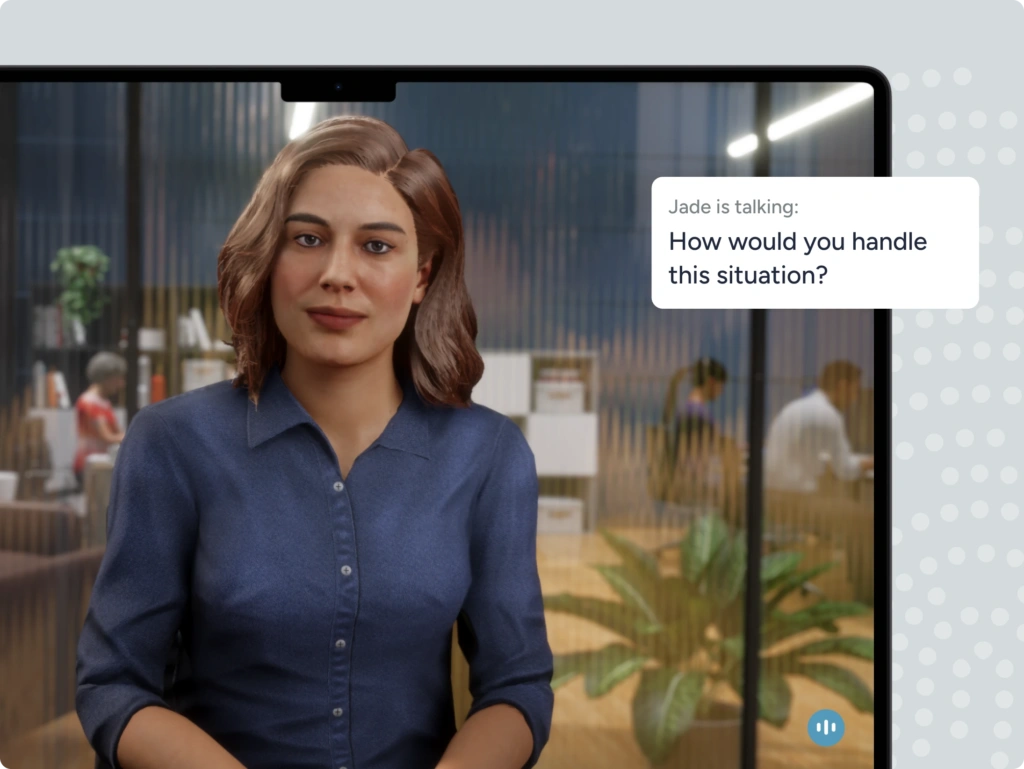Customer experience can make or break a brand. At the moments that matter most, it’s your frontline team shaping perceptions, calming frustrations, and building loyalty. Yet the reality facing those teams today is more challenging than ever: expectations are sky-high, roles are more complex, and the stakes for every interaction are higher.
Despite this, many organizations are still relying on training methods that haven’t evolved to match the demands of today’s customer experience. The result? Teams are underprepared to build the interpersonal intelligence and confidence that drives stronger outcomes.
The New Reality for Frontline Teams
Today’s frontline employees are far more than order takers or problem solvers. They’re brand ambassadors, product experts, and often the first and only human connection a customer has with your company. Each interaction carries the potential to deepen loyalty or erode trust.
As offerings become more complex, so do the expectations placed on the people supporting them. Every conversation might require troubleshooting, upselling, de-escalation, and empathy all within minutes. And when those moments go poorly, the damage can spread fast. On the flip side, one exceptional interaction can turn a customer into an advocate for life. That kind of excellence is built through intentional practice, not one-time training.
Why Traditional Training Falls Short
Traditional, one-size-fits-all training methods simply weren’t built for this environment. Classroom-style onboarding or static e-learning modules may teach policies, but they don’t prepare employees for the high-pressure, real-time decisions they face on the frontlines. Without meaningful practice, employees rarely build true confidence or lasting behavioral change and that affects not just performance, but morale and retention.
Even when organizations invest heavily in training, it’s often inconsistent across locations and hard to scale without losing quality. Without real practice, employees feel unprepared for the toughest moments, leading to missed opportunities, burnout, and turnover. Research shows that companies that invest in frontline growth see higher engagement and customer satisfaction; critical signals for leaders who want to be known for building strong teams and strong cultures.
AI Simulations as a Game-Changer
That’s exactly what Mursion’s immersive, AI-powered simulations deliver, blending human insight with machine precision to create transformative practice experiences that feel real, personal, and impactful.
These immersive tools replicate the scenarios your employees face every day: calming an irate customer, explaining a complex product, or navigating a compliance-sensitive situation. Employees can make mistakes without real-world consequences, receive feedback in real time, and try again until they’re confident and prepared.
The benefits are tangible. Companies using simulation-based learning see stronger consistency in training across locations, better knowledge retention, and measurable improvement in interpersonal like active listening, empathy, and de-escalation. It also fuels retention, employees who feel equipped and supported are far more likely to stay and grow with your company. In fact, companies that invest in upskilling report up to a 34% increase in employee retention. And in one case, organizations using Mursion’s AI-powered simulations saw over 30% improvement in active listening after just one practice round.
Beyond individual development, simulations provide valuable data. Leaders gain insights into team strengths and skill gaps, helping them adapt programs, inform coaching, and identify future leaders already working on the frontlines.
What Leading Organizations Are Doing
Forward-thinking brands are already integrating AI-powered simulations to raise the bar for customer interactions. Best Western partnered with Mursion to deliver virtual simulations to over 12,000 front desk staff across more than 2,200 North American hotels. Participating properties saw an average 2–5 % increase in guest satisfaction—with a 5.1 % lift in problem resolution—following simulation-based training focused on empathy and conflict handling.
Ready to Raise the Bar?
Your frontline deserves more than outdated training. They deserve tools that match their potential and the expectations placed on them.
Download the white paper to learn How AI Simulations Will Raise the Bar for Customer Interactions. You can also book a demo to see how AI-powered simulations can transform your training strategy.


